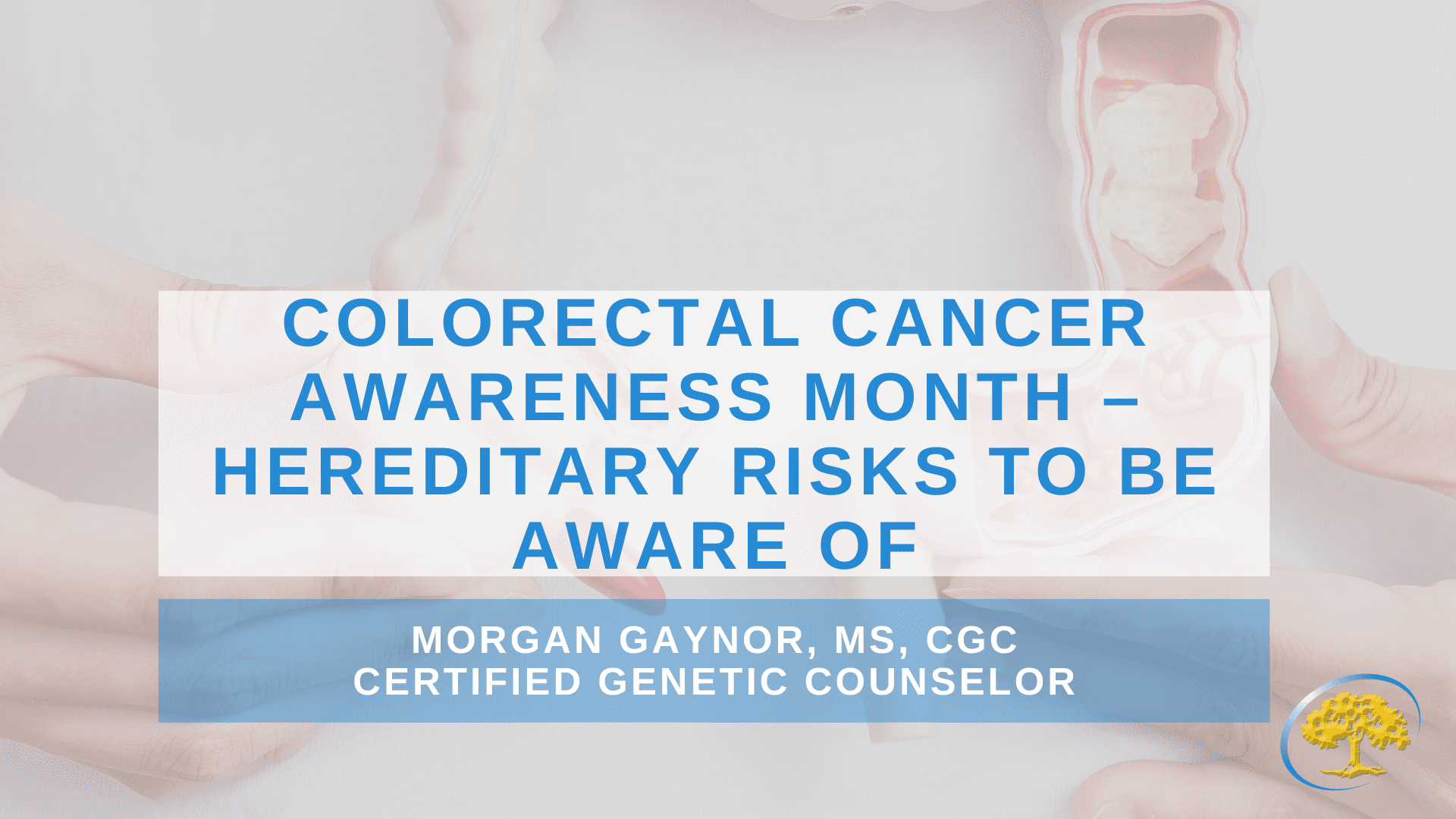
Posted 2 years ago
Colorectal Cancer Awareness Month – Hereditary Risks to be Aware of
March is Colorectal Cancer Awareness Month. In light of this month, we want to raise awareness for how genetics can be related to colorectal cancers. The general population has about a 4% risk of developing colorectal cancer in their lifetime. Although most cases of colorectal cancer are usually not caused by an inherited gene mutation, it is recommended that anyone who has a diagnosis of colorectal cancer under the age of 50 have genetic testing to see if there’s a hereditary factor contributing to their lifetime risk for cancer.
There are multiple hereditary cancer syndromes associated with an increased risk for colorectal cancer. Lynch syndrome is the most common hereditary colorectal cancer syndrome, affecting approximately 1 in every 279 individuals. It is associated with an earlier onset and significantly increased risk for colorectal cancer, as well as other cancers such as uterine and possibly ovarian cancer. Lynch syndrome may also cause a small increased risk for cancers of the central nervous system and brain tumors, as well as stomach, liver, bile duct, urinary tract, small bowel, and pancreatic cancers.
Most people with Lynch syndrome often go many years without ever knowing they have a genetic condition. This is because having a hereditary risk for certain cancers does not guarantee that cancer is going to develop in that person’s lifetime. Because of this, these mutations can ultimately be passed down from generation to generation without ever being diagnosed in a family. If you have a significant personal and/or family history of these cancer types, you may consider pursuing genetic testing to see if you could have a hereditary cancer risk, such as Lynch syndrome.
Knowing you have a hereditary cancer predisposition before a cancer occurs allows for the pursuit of increased cancer screenings and may even prevent certain cancers from happening in the first place. Learning about an inherited cancer risk after you’ve had a diagnosis of cancer can also be helpful. If you test positive for an inherited gene mutation that increases your risk for certain cancers, it can provide insights as to why you may have developed that cancer. It can also be advantageous for family members to know if they are at risk for inheriting the same genetic mutation as well. In addition, knowing about an inherited genetic mutation may also influence your current treatment plan as certain cancer treatments can be more effective in people with certain genetic mutations.
If you have questions about Lynch syndrome or other hereditary cancer predispositions, please speak to your Ironwood provider about a referral to Ironwood’s Genetic Services Department.
About the author
Morgan Gaynor Joined Ironwood Cancer & Research Centers In May 2022. She Earned Her B.S. In Molecular Biology And Genetics From Regis University And Earned Her M.S. In Genetic Counseling From The University Of Arizona.
During Her Time At The University Of Arizona, Morgan Completed A Two-Year Graduate Program And A Thesis On Best Practices In Counseling Low-Level Pathogenicity Results In Cancer Genetics Settings. She Completed Clinical Rotations At Prominent Healthcare Systems Such As Banner, Mayo Clinic, Color Genomics, Phoenix Children’s Hospital, And Dignity Health. During Her Time At These Institutions, She Gained Experience In Prenatal, Cancer, Cardiology, Pediatrics, And Pharmacogenomics Counseling.
Morgan Enjoys Running, Swimming, Cycling, Playing Piano, Hiking, And Spending Time With Her Family.
Please ask your Ironwood Cancer & Research Centers doctor for a referral to see our genetic counselor.

